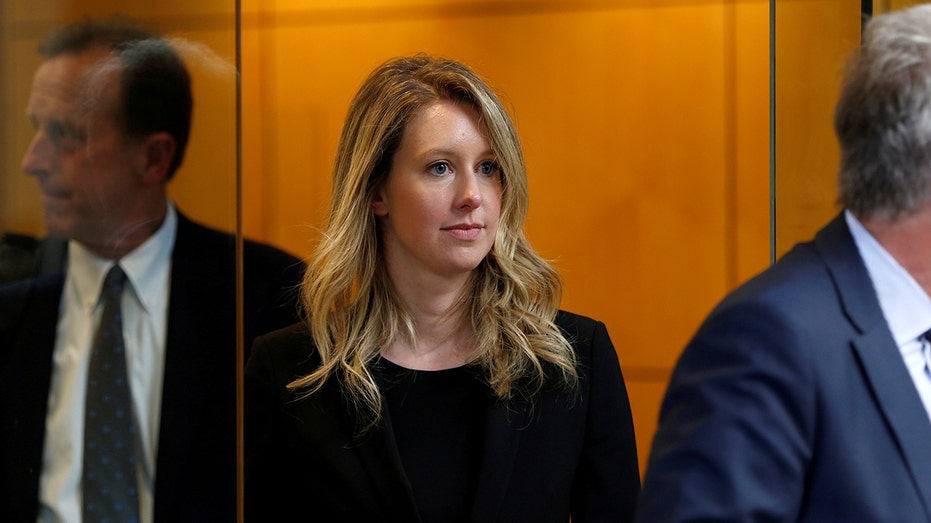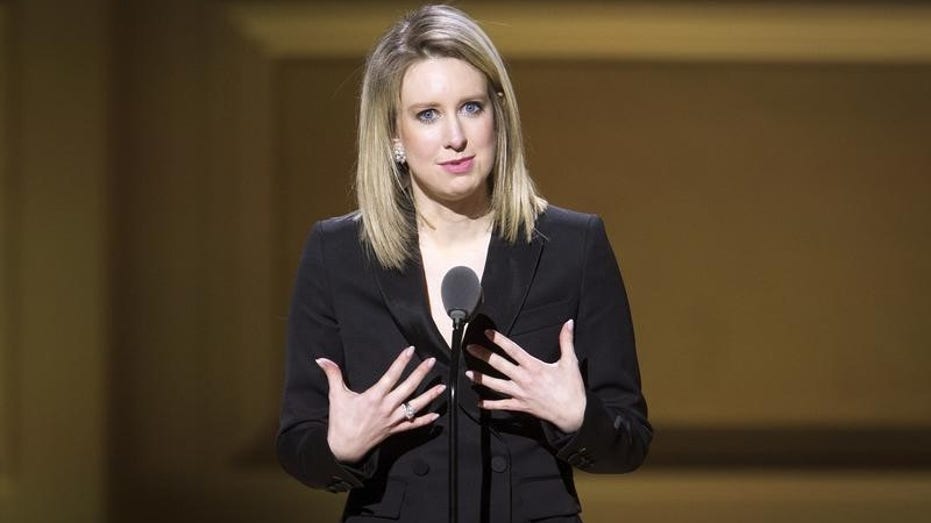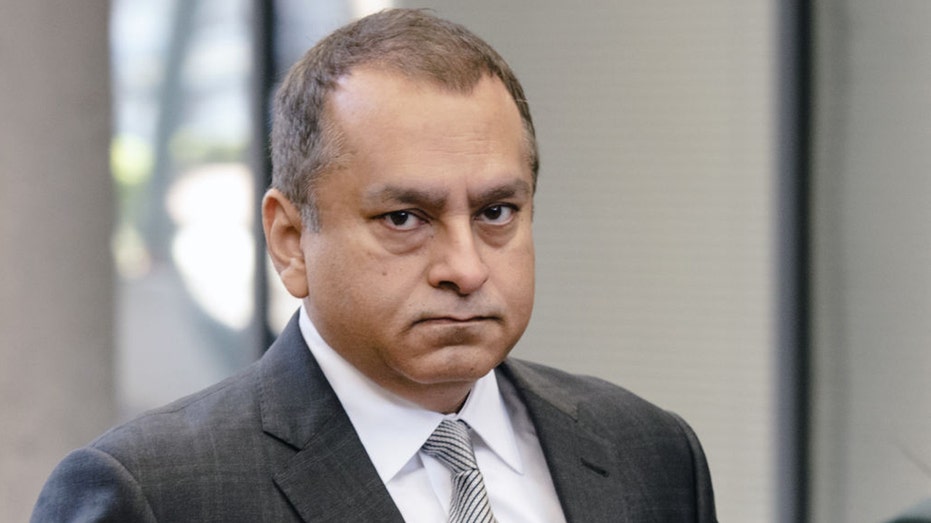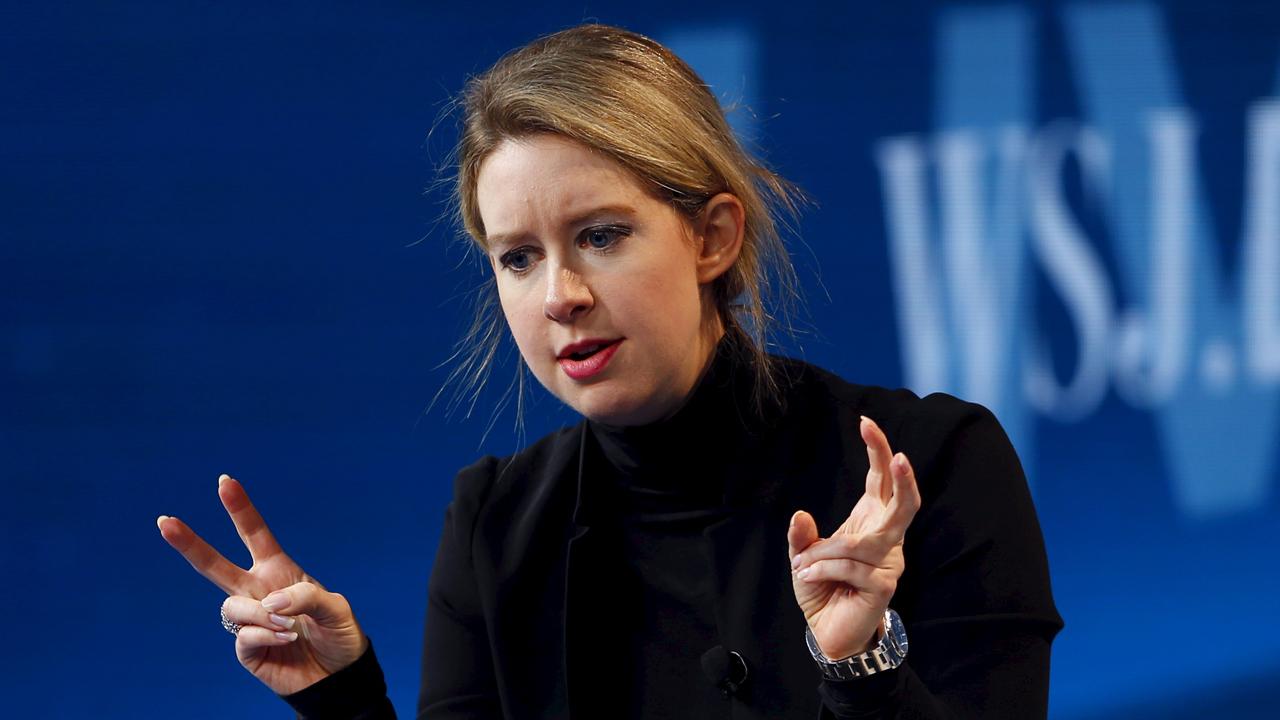Disgraced Theranos founder Elizabeth Holmes hoping to keep 'wealth, spending and lifestyle' out of upcoming fraud trial
Defense attorneys said introducing Holmes's wealth as evidence would be 'a momentous waste of time'
Embattled health care-tech founder Elizabeth Holmes is asking a federal judge in California to prohibit prosecutors from including evidence of her “wealth, spending and lifestyle” in their alleged fraud case connected to the one-time purported billionaire’s now-defunct company, Theranos, court papers show.
Holmes, through attorneys, argued in a motion filed Friday that introducing evidence of the now-36-year-old's purported wealth when she goes to trial in 2021 “would confuse the issues and would be a momentous waste of time,” according to court papers submitted in the Northern District of California’s San Jose division.
“This evidence is irrelevant to any issue at trial and serves no purpose other than to prejudice the jury,” the 12-page motion states. “The government has no legitimate purpose for offering this evidence. It has no bearing on whether Ms. Holmes engaged in the alleged schemes to defraud with which she is charged. Instead … [it] invites the jury to convict Ms. Holmes based on improper emotional appeals.”
The motion pointed to three “Federal Rules of Evidence” in arguing that such details of her life are “unfairly prejudicial,” are not relevant and are, therefore, not admissible. Holmes’ attorneys asked that any such evidence be excluded starting Jan. 22, 2021, and beyond.

Former Theranos CEO Elizabeth Holmes leaves after a hearing at a federal court in San Jose, California, July 17, U.S., 2019. (REUTERS/Stephen Lam)
“The amount of money Ms. Holmes earned in her position at Theranos, how she chose to spend that money, and the identities of people with whom she associated simply have no relevance to Ms. Holmes’ guilt or innocence,” court papers further state.
Despite that she was once considered the nation’s youngest female billionaire, the motion describes how Holmes – former CEO of Theranos before the company went under – received only “modest” financial benefits compared to the CEOs at other multibillion-dollar companies.
DISGRACED EX-THERANOS CEO ELIZABETH HOLMES IS ASKING FOR TOO MUCH: PROSECUTORS
“She took a lower salary even than the salaries of other Theranos executives,” court papers state. “And, although she owned a substantial amount of Theranos equity, she never sold any equity in the company – despite opportunities to do so and contrary to what one would expect if she intended to benefit from a massive fraud.”
The government has already pointed to its plans to outline evidence showing Holmes “obtained ‘personal benefit[s]’ from her position at Theranos,” the motion alleges.

Theranos Chief Executive Officer Elizabeth Holmes speaks on stage at the Glamour Women of the Year Awards where she receives an award, in the Manhattan borough of New York. November 9, 2015. (REUTERS/Carlo Allegri)
“According to the government, these ‘benefits’ include company-funded ‘luxury travel and accommodations’ and a ‘substantial salary’ that purportedly enabled Ms. Holmes to lead a ‘luxurious lifestyle,’ including ‘driving a luxury SUV, renting an expensive home, and purchasing expensive merchandise,’” court papers state. “The government has also alleged that Ms. Holmes ‘had her Theranos-paid assistants run personal errands, perform personal tasks, and purchase luxury goods.’”
She hobnobbed with the rich, famous and powerful, was written about in several publications and was “the beneficiar[y] of increased local and national standing” as a result of her affiliation with Theranos, the motion alleges the government has stated.
THERANOS FOUNDER ELIZABETH HOLMES IN COURT; ANATOMY OF A FRAUD
Forbes reported in 2015 that Holmes boasted an estimated net worth of $4.5 billion. As allegations of wrongdoing came out over the next year, her net worth reported dropped by nearly a billion and is expected to have plummeted since.
Prosecutors allege that Holmes and former chief operating officer Ramesh “Sunny” Balwani deliberately misled investors, policymakers and the public about the accuracy of Theranos’ blood-testing technologies.

Sunny Balwani, former president and chief operating officer of Theranos Inc., arrives at federal court in San Jose, California, U.S., on Wednesday, Oct. 2, 2019. (Michael Short/Bloomberg via Getty Images)
The two pleaded not guilty to wire fraud and conspiracy to commit wire fraud. If convicted, they could each face maximum penalties of 20 years in prison, a $2.75 million fine and possible restitution, the Department of Justice said.
Holmes, a Stanford University dropout once billed as the “next Steve Jobs,” forfeited control of the blood-testing startup in 2018, when she agreed to pay $500,000 to settle charges that she oversaw a “massive fraud.”
Under an agreement with the Securities and Exchange Commission at the time, Holmes was barred from serving as an officer or director of a public company for 10 years.
Two years earlier, the SEC, prompted by a Wall Street Journal investigation, began looking into claims Theranos had made about its potentially revolutionary blood-testing technology.
GET FOX BUSINESS ON THE GO BY CLICKING HERE
The Journal quoted former employees that suspected the technology was a fraud, and it found that the company was using routine blood-testing equipment for the vast majority of its tests. The story raised concerns about the accuracy of Theranos’ blood-testing technology, which put patients at risk of having conditions either misdiagnosed or ignored.
Holmes founded Theranos in Palo Alto, California, in 2003, pitching the company’s technology as a cheaper way to run dozens of blood tests. She said she was inspired to start the company in response to her fear of needles.
Theranos raised millions in startup funding by promoting its tests as costing a “fraction” of what other labs charge.
CLICK HERE TO READ MORE ON FOX BUSINESS
After the Journal’s investigation, Theranos and Holmes pushed back hard, and for months refused to acknowledge that its machines were effectively a sham. State and federal authorities started investigations into the accuracy of the company’s blood testing work. In 2016 the Centers for Medicare and Medicaid Services, which oversees blood testing labs in the U.S., banned Holmes from operating a lab and revoked Theranos’ blood testing license.
In late 2016, Theranos began shutting down its clinical labs and wellness centers and laid off more than 40 percent of its full-time employees. The company reportedly ceased operations in September 2018, months after Holmes stepped down as chief executive.
The trial is slated to start in March 2021.
The Associated Press contributed to this report.





















